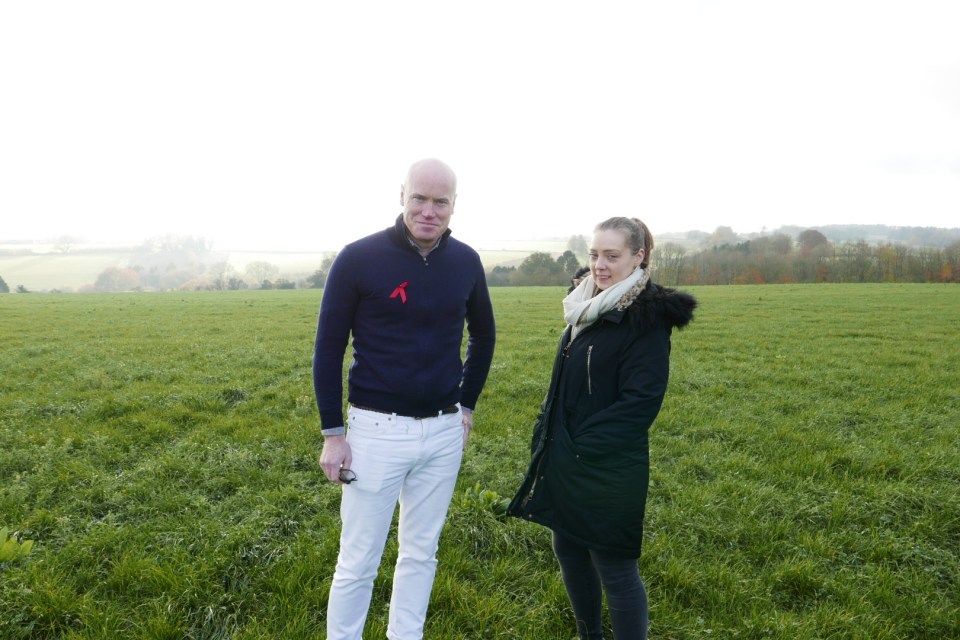“You’ve got the power to choose.” Sustainable steak with M Restaurants

The food industry gets a lot of environmental flak. Agriculture is responsible for a quarter of the world’s greenhouse emissions, according to the United Nations. Meat seems to be a particular problem, with 77 per cent of agricultural land given over to livestock despite them accounting for only 17 per cent of all the calories produced in a year, according to IDTechEx, a market research firm. Veganism, virtually unheard of even 20 years ago, has now firmly entered the mainstream. So can you tuck into a steak and keep a good conscience? M Restaurants thinks so.
“I wouldn’t just write the steak restaurants off”, says Alyson Parkes, Sustainability Operations Manager at M. “I think when we have these conversations a lot of the time people just assume, ‘oh it’s beef, so you can’t do anything, so everything that you’re doing is terrible’, but actually we’ve got a lot of power to do good.”
Martin Williams, M’s CEO, agrees. “People should eat less meat but when they do it should be better”, he says. “At M we have regeneratively farmed British beef, and the Argentine beef has a remarkably low footprint because the cattle are wandering around the pampas.” The freedom of the pampas is good for the cows and for the planet, too. The longer they have to eat, the less they belch and the less methane is emitted. Methane warms the earth about eighty times more than CO2. “If you’re picking at food you don’t belch, if you eat a Big Mac in ten seconds you’ll belch. That’s the difference between intensive rearing and natural grazing on pasture.”
This is just one way in which M makes its meat as environmentally friendly as possible. The company spent six figures examining its supply chain to understand its impact on the planet before sharing the results of its audit with rivals. “In this environment it shouldn’t really be about competition, it should be about sharing best practice”, says Williams. Six competitor restaurants have shown an interest in the firm’s Sustainable Steak Movement so far, but the meat is only part of the equation. “Energy, waste management, uniforms and even staff commuting” are something Parkes has to take into account to see how sustainable M really is. The company plans to achieve Net Zero in its own restaurants and as regards the energy it purchases by 2030, she says, and to be Net Zero across its entire supply chain by 2040.
All of this costs, but neither Parkes nor Williams are deterred. When setting up M “we wanted to create a legacy, to look back on it and to be proud of what we achieved not only from a commercial perspective but also with our impact on society”, says Williams. Parkes joined in 2020 to put theory into practice. Besides, he says, “if staff shortage is one of the biggest challenges right now and this initiative retains your staff then you’re getting instant payback on it.” And “there is certainly an amount of diners who, if they’re going to eat in a steak restaurant, they’d rather eat carbon neutral beef.”
Any commercial cost is anyway outweighed by the human impact. M works with Not for Sale, a charity fighting human trafficking, though Williams describes it as more like a “private equity fund” in its approach. The organisation “invests in people and business so they become self-sustaining and profitable”. M sponsors projects across eleven countries, with the majority in the Amazon basin. Williams gets emotional as he describes their impact. Human traffickers in the region are usually involved in illegal logging and mining, he says, and by stimulating businesses M is providing an alternative to the criminal economy. It is hard for western diners to appreciate just how “repugnant” the trades are. “The human element is the bit that I’m proudest of”, he says.
Looking far into the future, lab-grown meat could one day be on the menu. An “incredibly interesting” visit to an Oxford lab convinced Parkes that there was “potential” in the technology, but for now the boffins are making mince in the test tube. “It’s not like they’re growing steaks”, she says. And at the moment competing ESG labels mean that it’s “very very difficult” to confidently say if one restaurant is better for the planet than another, with different standards “looking at various aspects”, she says. Williams thinks that there will, one day, be a uniform benchmark.
Perhaps whether you can eat steak in good conscience or not depends on you. “You can already choose a restaurant based on a conscious decision”, says Williams, adding “people should start making that decision on where they dine based on that”. Parkes agrees: “You’ve got the power to choose.”